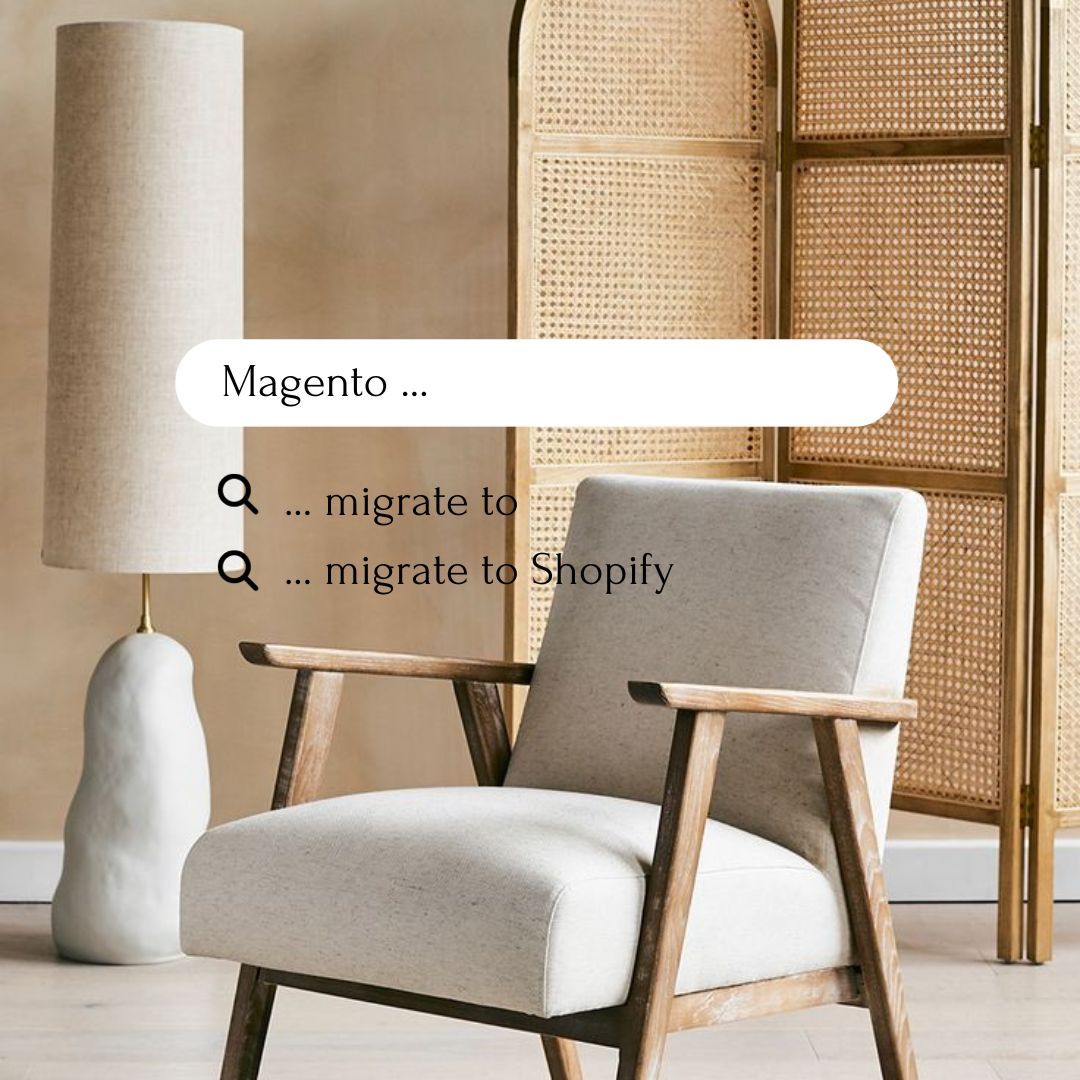The digital commerce landscape is witnessing a significant shift as numerous online retailers transition away from legacy platforms like Adobe Commerce (formerly Magento) and Salesforce Commerce Cloud. This movement is gaining momentum, with a notable uptick in brands choosing Shopify for their e-commerce operations.
Just recently, the home decor retailer Industry West made headlines by migrate from Magento (Adobe Commerce) to Shopify, encompassing its primary website, the Canadian subdomain, and its affiliate brand, Favor.
Having utilized Adobe-Magento for over a decade, Industry West embarked on a new chapter, leaving behind a platform that had hosted its e-commerce activities since its last major update in 2018. During this period, Industry West's e-commerce ventures generated revenues just under $50 million, as stated by Jordan England, the company's founder and CEO.

The catalyst for this strategic shift, according to Steven Scarborough, the e-commerce director at Industry West, was the need for innovation that matched the company's scale. "As a digital-first brand, we found that Adobe Commerce was more of an obstacle than an asset, consuming more resources in maintenance than in enhancing our e-commerce initiatives. Our priority is to scale our operations and deliver unparalleled customer experiences, and we believe Shopify Plus is the key to realizing these goals," Scarborough explained.
Industry West is not an isolated case. Brands like Kuru, Every Man Jack, and Crystal Clear Memories are also preparing to migrate from Magento to Shopify in the near future. Meanwhile, MODLOFT is set to debut on Shopify, moving from a bespoke solution.
The underlying concern among these merchants is the cumbersome maintenance and complex feature development on Adobe Commerce, which they find to be overly time-intensive and costly.

Troy Petrunoff, the retention manager at Every Man Jack, shared insights into their migration journey. "Our e-commerce site went live on Magento about four years ago, and after two years, we sought an agency to facilitate our move to Shopify," he said. "The primary reasons were the desire for a more user-friendly backend that doesn't rely on developer intervention for simple site updates, and the allure of the Shopify ecosystem, which is renowned for its extensive range of compatible tools and applications tailored for Shopify storefronts."
This narrative underscores a broader trend where e-commerce brands are seeking more agile, cost-effective, and user-friendly platforms that can accommodate rapid growth and dynamic market demands.
The e-commerce sector is experiencing a notable shift as business owners like Dann Nunn of Crystal Clear Memories express concerns over the prolonged timeframes required to add new features on platforms like Magento. Nunn points out the scarcity of Magento developers and the extended periods needed for feature rollouts, citing a personal experience where a four-month delay occurred just to integrate a payment option.
"I'm forfeiting advanced functionalities by not utilizing Shopify, which offers integrations with tools like Triple Whale and PayPal's 'Buy Now, Pay Later' service," Nunn remarked, highlighting the limitations of his highly customized Magento setup.

Additionally, Nunn faced challenges integrating TikTok's tracking pixel, an increasingly crucial tool given the social platform's advertising reach. "The absence of a Magento extension for TikTok's pixel for over half a year significantly hindered our marketing efforts," he explained.
Echoing this sentiment, Sean McGinnis, president of the footwear brand KURU, attributes their impending switch to Shopify to the desire to eliminate technical debt. "Our progression from Magento 2.1 to 2.3 was a year-long endeavor," McGinnis shared. "We anticipate Shopify Plus will streamline our operations, allowing us to swiftly create new pages and explore different customer engagement strategies."
Despite the substantial costs associated with switching platforms, businesses are not deterred.
Nunn, who has self-funded Crystal Clear Memories, rationalizes the decision, focusing on the potential losses incurred by not being part of the Shopify ecosystem, especially as it becomes increasingly favored by direct-to-consumer brands. "Considering the immediate and future financial implications, the investment in Shopify Plus, even with its replatforming and subscription fees, is justified when compared to the ongoing expenses and constraints of Magento," he concluded.

The e-commerce landscape is undergoing a transformation, with a noticeable drift of businesses from Adobe Commerce (formerly Magento) to platforms like Shopify. This trend raises questions about the future of Adobe's ecosystem and the agencies that have traditionally supported it.
In the face of potential economic challenges and a growing preference for more streamlined e-commerce systems, agencies heavily reliant on Adobe may find themselves at a crossroads.
Mark William Lewis, the founder of Netalico, an e-commerce development agency, observes that Shopify has reached technological parity with Magento, offering merchants the ability to concentrate on marketing rather than backend complexities.
"Magento was once the go-to for its flexibility and cost-effectiveness, thanks to its open-source model," Lewis notes. "Now, Shopify's enhanced core capabilities and robust partner network match Magento's offerings, but with greater simplicity. This shift allows merchants to tailor and expand their operations without the immediate need to grow their tech teams, focusing instead on business growth and marketing."
Despite this, Shopify isn't without its challenges. Its stock, currently around $340 per share, has seen a significant drop from its peak during the e-commerce surge prompted by the pandemic.
Yet, analysts remain optimistic about Shopify's long-term prospects. As stated by a Forbes analyst, "Despite short-term headwinds, Shopify's stock presents a more attractive risk-reward balance than we've seen in quite some time."
At SoftSoftSoft, an e-commerce development agency, we understand the challenges and opportunities that come with platform migration. We are poised to assist clients and companies in making a smooth transition to user-friendly marketplaces like Shopify and BigCommerce. Our expertise ensures a seamless shift, allowing you to focus on what you do best: growing your business and enhancing your customer's experience.
Are you ready to elevate your e-commerce platform? Leave a request for a free consultation and let us guide you through a hassle-free transition to the forefront of digital commerce.



